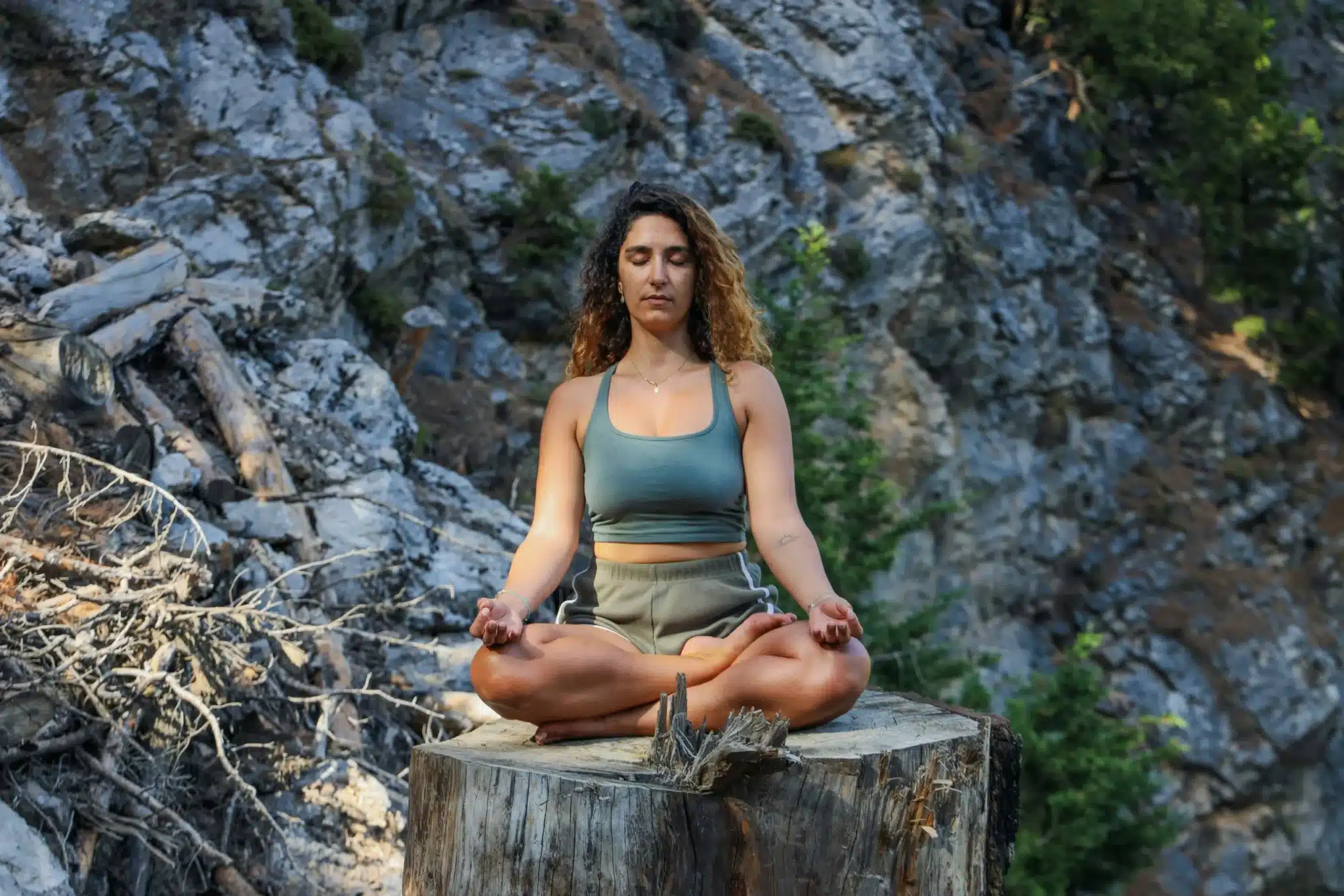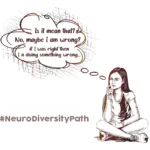Are you feeling overwhelmed by the constant rush of daily life? In a world that never seems to slow down, it’s easy to become tangled in stress and anxiety. What if there was a simple way to reclaim your peace of mind and improve your mental health? Meditation offers a path to inner calm and balance, a sanctuary amidst the chaos.
In today’s post, you’ll discover how meditation can transform your mental well-being. By the end, you’ll have practical tips to integrate meditation into your routine and experience profound benefits. Ready to embark on this journey to a healthier mind? Let’s begin.

Understanding the Basics: What is Meditation?
Meditation is a practice that dates back thousands of years and is rooted in various spiritual and philosophical traditions. At its core, meditation is about focusing the mind and achieving a state of deep relaxation and awareness. It involves techniques like deep breathing, mindfulness, and concentration, which help quiet the mind and reduce distractions.
There are many forms of meditation, each offering unique benefits. Mindfulness meditation focuses on being present in the moment. Transcendental meditation uses mantras to help settle the mind. Guided meditation involves listening to a teacher or recording to lead you through the practice. Experimenting with different types can help you find what works best for you.
Starting a meditation practice doesn’t have to be complicated. Begin with just a few minutes each day in a quiet space. Gradually increase the time as you become more comfortable. Consistency is key. Over time, meditation will become a natural and rewarding part of your daily routine.
The Science Behind Meditation and Mental Health
Meditation has been extensively studied, and science supports its benefits for mental health. Research shows that regular meditation can reduce stress, anxiety, and depression. It works by calming the mind and promoting a sense of inner peace. Brain imaging studies reveal that meditation can actually change the brain’s structure, enhancing areas related to emotional regulation and focus.
Meditation also impacts the body’s stress response. It lowers cortisol levels, the hormone associated with stress. This reduction in cortisol helps decrease symptoms of anxiety and improves overall well-being. Additionally, meditation can boost the production of serotonin, the “feel-good” neurotransmitter, which plays a key role in mood regulation.
Beyond mood enhancement, meditation improves cognitive functions. Studies indicate that regular practice enhances attention, memory, and problem-solving skills. This mental clarity helps you navigate daily challenges more effectively. Meditation encourages mindful awareness, allowing you to respond to situations with greater calm and control.
Incorporating meditation into your routine can lead to lasting mental health improvements. Set aside dedicated time each day for your practice. Even short sessions can be beneficial. Use apps or online resources to guide you, especially when starting out. Over time, you’ll notice a positive shift in your mental and emotional state, reinforcing the importance of this powerful practice.
Stress Reduction: Finding Peace in Stillness
Meditation is a powerful tool for reducing stress. It encourages you to focus on the present moment and let go of worries about the past or future. This mindful presence helps break the cycle of stress and anxiety. As you practice, you’ll find it easier to remain calm in the face of daily pressures.
Breathing techniques play a crucial role in stress reduction. Deep, slow breathing activates the body’s relaxation response, lowering heart rate and blood pressure and creating a sense of tranquility. Try incorporating breath-focused meditation into your routine. Close your eyes, take deep breaths, and concentrate on the sensation of breathing. This simple practice can quickly alleviate stress.
Creating a peaceful environment enhances the stress-reducing effects of meditation. Find a quiet, comfortable space where you won’t be disturbed. Dimming the lights and using soft music or natural sounds can help set the mood. Consistency is vital. Make this space your regular meditation spot to condition your mind to relax upon entering.
Incorporating mindfulness into daily activities also reduces stress. Practice being fully present during everyday tasks, like eating or walking. Notice the sensations, smells, and sounds around you. This mindful approach helps keep stress at bay throughout the day. By embracing stillness and mindfulness, you’ll cultivate a lasting sense of peace and resilience against stress.
Enhancing Emotional Well-Being Through Meditation
Cultivating Self-Awareness
Meditation fosters self-awareness, helping you better understand your emotions. By observing your thoughts without judgment, you gain insight into emotional patterns. This awareness allows you to identify triggers and respond more mindfully. Over time, you’ll become more attuned to your feelings, leading to healthier emotional regulation.
Building Compassion and Empathy
Loving-kindness meditation is particularly effective in enhancing emotional well-being. This practice involves silently repeating phrases that promote kindness towards yourself and others. It helps build compassion and empathy, reducing feelings of anger and resentment. Regular practice can transform how you relate to yourself and those around you, fostering a more positive emotional environment.
Strengthening Resilience
Meditation also strengthens emotional resilience. It teaches you to remain calm and centered during challenging situations. By practicing mindfulness, you learn to accept emotions without becoming overwhelmed. This resilience helps you bounce back from setbacks more quickly and maintain a balanced emotional state. Embracing meditation as a tool for emotional well-being will lead to a more fulfilling and harmonious life.
Practical Tips to Start Your Meditation Journey
Starting a meditation practice can be simple and rewarding. Begin by setting aside a few minutes each day in a quiet space. Consistency is crucial, so try to meditate at the same time daily. Dr. Sara Lazar of Harvard University found that practicing meditation for just eight weeks can lead to measurable changes in brain regions associated with memory, sense of self, empathy, and stress.
If you’re new to the practice, use guided meditations. Apps and online resources offer structured sessions to help you get started. Focusing on your breath is a good technique for beginners. Pay attention to each inhale and exhale, allowing your mind to settle.
Don’t be discouraged by wandering thoughts. Gently bring your focus back to your breath without judgment. This redirection strengthens your mindfulness over time. Remember, progress in meditation comes with patience and persistence.
Finally, be kind to yourself throughout this meditation journey. Understand that it’s a unique process devoid of strict rules or judgments. Embrace every moment, whether it’s a breakthrough or a struggle. Remember, even the smallest steps forward are worth celebrating. Stay dedicated and consistent, nurturing your practice with patience and understanding. Over time, meditation will seamlessly integrate into your daily routine, enriching your mental clarity, emotional stability, and overall wellness. Each session is a chance to learn more about yourself and cultivate inner peace. Allow yourself the space to explore different techniques and approaches, trusting in your innate wisdom to guide you. With perseverance and self-compassion, meditation will evolve from a practice to a lifestyle, profoundly influencing every aspect of your being.
Integrating Meditation into Your Daily Life for Lasting Benefits
Make meditation a regular part of your daily routine to reap its full benefits. Start with short sessions and gradually increase the time as you become more comfortable. Integrate meditation into your morning or evening rituals to ensure consistency. This practice sets a calming tone for the day or helps unwind before bed.
Find creative ways to incorporate mindfulness into everyday activities. Practice mindful eating by savoring each bite and paying attention to flavors and textures. During walks, focus on the sensation of your feet touching the ground and the rhythm of your breathing. These small moments of mindfulness can significantly enhance your overall sense of well-being.
Join a meditation group or community to stay motivated and inspired. Sharing experiences and challenges with others can provide support and encouragement. Many communities offer online sessions, making it easy to connect and practice together. Integrating meditation into various aspects of your life will build a sustainable habit that fosters long-term mental health and emotional balance.
“Quiet the mind, and the soul will speak.”
— Ma Jaya Sati Bhagavati
Meditation offers a transformative path to improved mental health. From understanding its basics to exploring its science, we’ve seen how meditation reduces stress, enhances emotional well-being, and builds resilience. Practical tips and integrating meditation into daily life ensure lasting benefits. Personally, I’ve found that even a few minutes of daily meditation brings clarity and peace, helping me navigate life’s challenges more calmly.
Embrace meditation as not just a practice but a profound tool for nurturing your mental well-being. Start with small, manageable steps, ensuring consistency in your efforts. Delve into various meditation techniques, allowing yourself the freedom to explore what resonates most deeply with you. Remember, your path toward a healthier mind is uniquely yours, shaped by your experiences, preferences, and needs. However, the benefits you stand to gain are universal and transformative. As you commit to this journey, anticipate reducing stress, enhancing emotional resilience, and cultivating a more harmonious and balanced life. Embracing meditation is an act of self-care and empowerment, allowing you to foster a profound connection with yourself and the world around you. With each moment of mindfulness, you pave the way toward greater clarity, peace, and fulfillment in your life.
Have you tried meditation, or are you considering starting? Share your thoughts and experiences in the comments below. Let’s support each other on this journey to better mental health!





